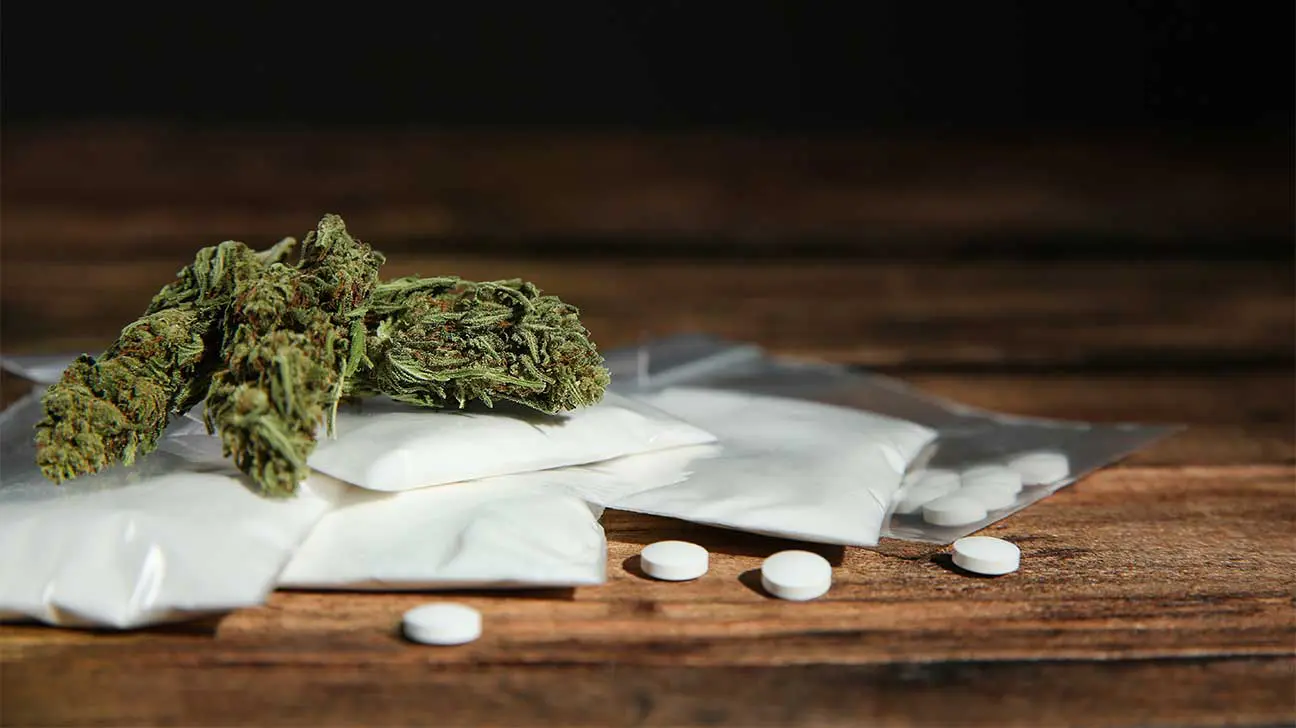
Under the Controlled Substances Act, the U.S. federal government classifies all controlled substances, including drugs and chemicals, into five schedules.
Schedule I drugs have the following characteristics:
- high potential for drug abuse
- high potential for physical or psychological dependence
- no accepted medical use
Schedule I drugs are the most strictly regulated of all controlled substances. Controlled substances are drugs or chemicals that are regulated in some way by the federal government.
List Of Schedule I Drugs
Drugs are largely classified by the U.S. Drug Enforcement Administration, which is an agency of the U.S. Department of Justice.
Common schedule I drugs include:
- heroin
- cannabis (marijuana)
- ecstasy (molly/MDMA)
- LSD
- GHB
- quaaludes
- peyote (mescaline)
- psilocybin (magic mushrooms)
- bath salts (3,4-methylenedioxypyrovalerone or MDPV)
- synthetic marijuana (Spice, K2)
- khat (cathinone)
In addition to this list, a number of opium derivatives and chemicals are also classified as schedule I substances.
Are Schedule I Drugs Legal?
Unless specifically authorized, all schedule I drugs are illegal to use, possess, manufacture, or sell in the United States. Criminal penalties vary by state.
An exception to this is marijuana. Marijuana is fully legalized in 16 states, the District of Columbia, and two territories. It is legal for medical use in 36 states and four U.S. territories.
Why Marijuana Is Classified As A Schedule I Drug
Although attempts have been made to reclassify marijuana, it remains a schedule I drug according to federal drug classifications.
One reason given for this is a lack of substantial evidence to support medical benefits. Although certain medical benefits of marijuana have been identified through some research, the amount of evidence has yet to meet the threshold required by the federal government.
Scheduling a drug, and reclassifying it, is a complicated and drawn-out process that can take time, funding, and substantial research to justify a drug’s classification.
Are Schedule I Drugs Dangerous?
Schedule I drugs are not classified based on whether they are dangerous. Schedule I drugs are believed to have a high potential for misuse and physical or psychological dependence.
Getting Help For Drug Misuse
Drug abuse and addiction can affect anyone. Without treatment, it can have harmful effects on physical health, mental health, and your ability to function in day-to-day life.
If you or a loved one is misusing drugs, you’re not alone. Call our helpline today to find a drug treatment program that’s right for you.
Addiction Resource aims to provide only the most current, accurate information in regards to addiction and addiction treatment, which means we only reference the most credible sources available.
These include peer-reviewed journals, government entities and academic institutions, and leaders in addiction healthcare and advocacy. Learn more about how we safeguard our content by viewing our editorial policy.
- National Conference of State Legislatures—State Medical Marijuana Laws
https://www.ncsl.org/research/health/state-medical-marijuana-laws.aspx - U.S. Drug Enforcement Administration (DEA)—Controlled Substances - Alphabetical order
https://www.deadiversion.usdoj.gov/schedules/orangebook/c_cs_alpha.pdf - U.S. Drug Enforcement Administration (DEA)—Drug Scheduling
https://www.dea.gov/drug-scheduling - Vox—The federal drug scheduling system, explained
https://www.vox.com/2014/9/25/6842187/drug-schedule-list-marijuana


